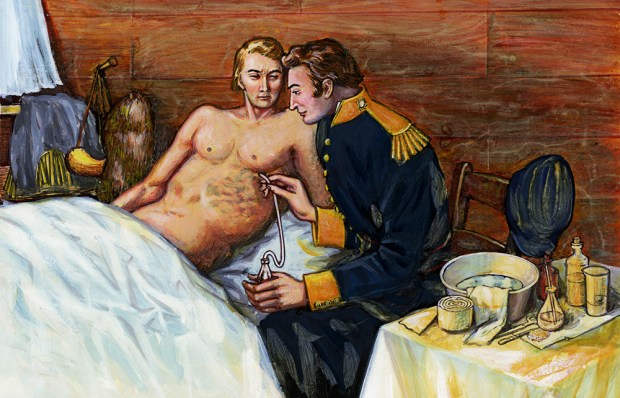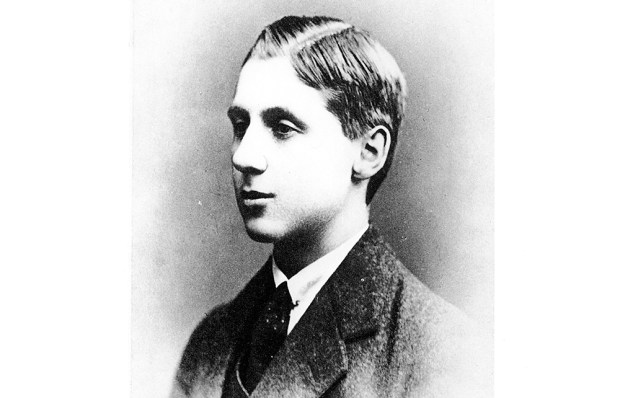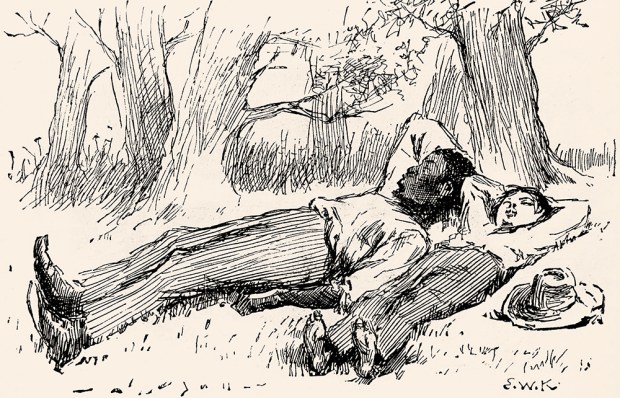‘Challenging stuff,’ my wife remarked, having alighted on the page of Paul Kingsnorth’s new novel in which a character named el supplies several stream-of-consciousness paragraphs about a ritual dance featuring ‘big Birds runnin round Pole and fyr and mam and mother and all womyn and these big things all hummin’. Dystopian, or by the time you reach the final paragraph, maybe only utopian, Alexandriaturns out to be set in the East Anglian fens a millennium or so in the future. Here lurk the last tattered remnants of a self-sequestered religious cult, their numbers steadily depleted by marauding ‘stalkers’, their destiny ever more uncertain.
By the time of the ‘sikkel moon’ only seven members of the ‘Order’ are still above ground: the nature-loving, teenage el, her parents sfia and nzil, unattached lorenso (whose illicit dalliance with sfia adds an extra layer of trauma to the proceedings), mother, father and a fast-fading shaman named yrvidian (‘he is not long for Erth’).
Hedged about with taboo and ceremony (‘woman becoming’, ‘Swaller Day’), with a complex creation myth and an iconography involving birds and exiled Ladies, the Order’s function is to resist all-conquering Wayland, the machine that several hundred years ago turned the tables on its human creators.
‘For man made Wayland to do his biddin, made this great mind to think for him, to control all for him, but Wayland was daemon and beginnin to do his own.’ The reader who sniffs the scent of allegory in this passage from ‘sermon of the mother’ will find it wafting over the chain of prophecy, quest, depredation and rising waters that follows yvridian’s vision of a future in which Alexandria, a kind of cyber-state of mechanised souls (‘the opportunity to ethically remove the human body from the world’ as one of the stalkers puts it) will disintegrate once the long-vanished swans are back in town.
Like father and lorenso, who set out by ‘cnoo’ to seek the birds’ advice, Kingsnorth spends most of his near-400 pages taking some serious risks. One of them is the Order’s vocal style, half faux-Anglo-Saxon, half contemporary slang (‘cute’, ‘hun’, ‘amazin’ etc). On a good day — when el is out communing with fauna in the woods or protesting that ‘I want to see all these things in big world. I do not want them all to be nice’ — this can seem wonderfully sharp and vivid; but on a bad day it brings to mind the Geoffrey Hill of Mercian Hymns reinterpreted by a 1960s-era experimental novelist who has been induced to read Richard Jeffreys’s dystopian classic After London(1885).
Another risk is to introduce one of Wayland’s emissaries into the narrative and give it a contemporary voice (‘You have no idea how limited your portrait of the world is,’ it lectures an unimpressed sfia). The final risk is the novel’s size. You can’t help thinking that Alexandria, however imaginatively conceived and ecologically switched-on, might have worked better at half the length.
Got something to add? Join the discussion and comment below.
Get 10 issues for just $10
Subscribe to The Spectator Australia today for the next 10 magazine issues, plus full online access, for just $10.
You might disagree with half of it, but you’ll enjoy reading all of it. Try your first month for free, then just $2 a week for the remainder of your first year.














Comments
Don't miss out
Join the conversation with other Spectator Australia readers. Subscribe to leave a comment.
SUBSCRIBEAlready a subscriber? Log in